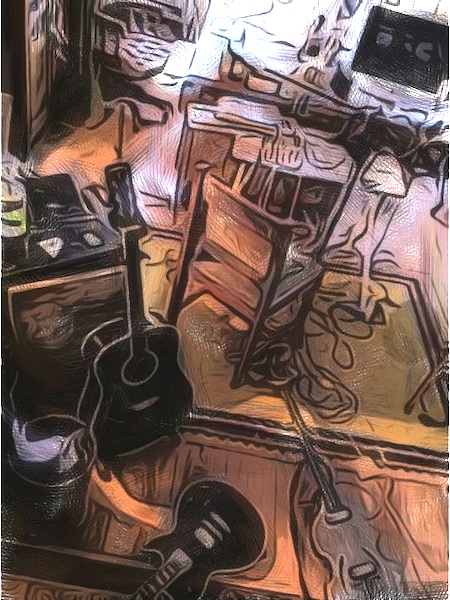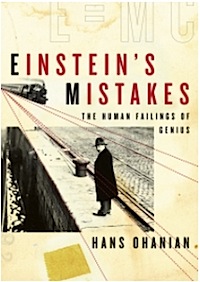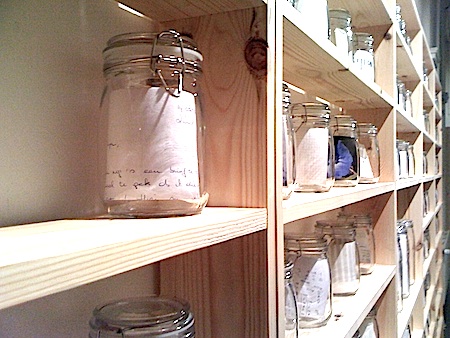SB Tweet Digest #12 (February 2011)
march 14, 2011.
[ ookoi | Impronet | Einstein | Turangalîla Tales | Found Tapes | Soundtracks ]
[Feb 22, 39947638010806272] Al Jazeera (@ajenglish) chapeau. Is now my number one used iPhone app. Indispensable these days. Especially at breakfast.
[Feb 08, 34904776521158657] #eartwit "oei, Oei, hehe, eh, Oei, ach, ah, ach so, ach zo, tja, eh, ach, eh, Hé!, hé, eh, oh, Huh?, eh, ah, eh ja, nee" > RT @theoploeg ;-)
- Feb
01, [32361390370988032]
"all those bills stuffed in there so tight, that the change in the bottom
didn't even clink or jingle" (Small World) http://j.mp/ylsmllwrld2
[[Vincennes, Paris]] - Feb 08, [34852322618114048]
"but before the record was halfway through, its energy and hammering clanging
rhythm oppressed me" (Small World) > http://j.mp/ylsmllwrld5
[[Oude Pijp, Amsterdam]] - Feb 14, [37108183184965632]
£PcM's 6th week in images > RT @petermertens
..... http://petermertens.com/week/week06.jpg
#week Geartificialiseerd. #LeukIsMooi
[[Vincennes, Paris]]

This fine picture is a reality artificialization by £PcM, in the style of his workweekly image book that you may follow by following @petermertens. It shows you how things were looking during the pretty intense working sessions with the ookoi this February in Amsterdam. Among other things, we made a start with a re:composition/interpretation of the Small World cycle.
And because my Seventy Seconds time-slot actually twice fell within the hours that Peter and me were rehearsing and recording, ten seconds sonic glimpses of the sessions are included in my 10-seconds-per-day sound diary for 2011: you can get a taste of ookoi chanting Like the dreaded sunday in week 5, and a bit of ookoi doing Any track in week 9... Heav(en)(i)ly unplugged ...
[Feb 01, 32550955807408131] RT @juhavantzelfde "I'd rather listen to the silver pitched sound of a speeding tram on wet tracks [...]" #eartwit
- Feb
01, [32411403776167936]
I contributed "The L Track" to @Anton_Mobin's
chain improvisation project 'Impronet', 'L' for 50th in the ongoing series.
http://j.mp/ltrack
[[Oude Pijp, Amsterdam]]
Impronet is a collaborative online music project, initiated by the French musician @Anton_Mobin. It is a project in a spirit similar to the work of the Chain Tape Collective, or Sound Injury. Anton kicked off Impronet two years ago, in February 2009, and there's a new sound file online roughly every two weeks. For each subsequent edition, a musician is invited to record an improvisation, of a duration of 3 minutes, related to (inspired by, commenting on, ... etc) the previous link in the chain.
It was a pleasure and an honor to be invited by Anton to contribute the 50th link in this ongoing chain of improvisations. My dictaphone based contribution, The L Track, comes after the 49th, by Matthieu Safatly from Brussels (Belgium), called Compte Gouttes.
It is pity, by the way, that there is no way (yet?) to devour the Impronet chain online as a continuous audio stream...
[Feb 08, 34881121665826817] "Gubbels in the morning. Silent now: no wind heard, a rooster, the distant sea & car leaving" #eartwit @Archipel > http://twitpic.com/3xmt1e
- Feb 09, [35246264257875968]
RT @Lise_Meitner "Hänchen,
go upstairs and do some chemistry!" -- (cf. http://einsteinsmistakes.com,
p. 170)
[[Vincennes, Paris]]
In the Amsterdam bookstore Het Martyrium, where I regularly spend
time going through the ramsj
(that's how - using a Yiddish word - remaindered
books are called in the Netherlands), early this February one title
 immediately caught my attention: Einstein's
Mistakes.
immediately caught my attention: Einstein's
Mistakes.
Written by physicist Hans Ohanian, the book is a fairly atypical biography
of Albert Einstein, last century's biggest (and arguably the world's first)
public media 'hard science' superstar. Its 300 and some pages give an overview
of Einstein's life and work as a long and near to unbroken chain (a 'comedy')
of ... errors. The book is only marginally concerned with Albert's human
(social and relational) harshness, weaknesses and shortcomings. Many probably
will know about those. But it is putting a near to blinding spotlight
on the great many scientific errors (on the physical as well as
the mathematical side) committed by this, (of course) utterly obsessive,
pioneer who relentlessly persisted and urged onwards, letting somewhat curious
ideas on 'aesthetics' and a pretty much mystical intuition prevail, along
a singular track that, despite of all the errors made underway, led him
to maybe not so much a deeper understanding, but indisputably
still by far the most accurate description of our physical reality
cq. universe to date.
The book is not written for specialists, but for a general public. Which is why above I called Ohanian's spotlight on Einstein's errors blinding. Unlike practicing scientists, the general public will often be ignorant of the fact that all science proceeds along a path that is strewn with smaller and bigger mistakes, and that there are but very few scientific papers that will not, at some level or another, contain errors. Errors in details, but also more fundamental ones. It is also a fact, however, that errors will not necessarily invalidate a work's conclusions and/or outcome. And then: 'small science' comes with 'small errors', while big science will risk errors of a grander kind.
Ohanian's book nevertheless is revealing, in the sense that one might suspect a scientific legend like Einstein to be less error-prone, while the contrary seems to be the case. It's a good read, even though the book's tone at times is a bit over-vindictive. The protagonist here and there comes across as some sort of a village idiot, that stumbled upon discoveries of dazzling depth by mere chance. That of course is nonsense.
[Feb 08, 34833666278428673] RT @grahamdunning "[..J]ust standing and listening on Paddington station. Great big reverb. Looks lovely too." #eartwit
[Feb 08, 34944695993896960] @soundblog #eartwit ? How dare you, sir?!
[Feb 08, 34954503111315456] @grahamdunning #eartwit = hashtag to mark tweets describing sound(scapes) and people listening. It's nothing personal, Graham... ;)
- Feb 10, [35589961029926912]
Re-listening Messiaen's Turangalîla. Call me a nitwit, but can't help being reminded *all the time* of Yes' Tales from Topographic Oceans :)
[[Place Vendôme, Paris]] - Feb 10, [35656717689688064] @soundblog but that's the worst Yes album ever....!
- Feb 10, [35664243688873984]
@JosSmolders Everybody says so. But I think it's their best, lengths ahead of Relayer. Serious. Ah well, maybe I really am that #nitwit ;-)
[[Vincennes, Paris]] - Feb 17, [38187047696990208] #wirelessstories "Shee, shee, shee! The jinnies is jillous agincourting all the lipoleums" ;) #fw http://yfrog.com/hsi75lhj
I first heard it as far back as the mid 1970s, but I hadn't been listening to Olivier Messiaen's Turangalîla
Symphony for a long time. Then very early one morning in February, it was around 6pm, I woke up to
a sudden urge to hear precisely that music. So I brew me some coffee and dug up my Turangalîla CD. It's the 1990
Orchestre de l'Opéra Bastille-recording
conducted by Myung-Whun Chung, with Yvonne and Jeanne Loriod for the piano and ondes Martenot parts,
and supervised by the composer.
I must first have heard Tales
From Topographic Oceans
around the same time, as I undoubtedly got this 4 tracks double vinyl
album by British prog rock mastodon Yes in the year that it was
originally released, in 1974. It was not an album that I played a lot though.
And then for some twenty or thirty years I did not hear it
at all. For some reason about a year ago a digital copy ended up on my iPhone,
along with some other relatively early Yes albums, like Close
to the Edge
and Relayer.
I then began stumbling upon Tales during the long rides between
Amsterdam and Paris, when I sit looking out over wide French and Belgian
fields and listen to music to enliven the monotonous rumble of rubber rolling
along the high way. And while a lot of records and pieces pretty soon get i-dumped again, Tales From Topographic Oceans
stayed on and on and on. I heard it a lot over the past year, and - apparently -
did not get fed up with it.
On that early February morning not so long ago, when I sat sipping coffee and listening to the Messiaen piece, I found myself - to my own surprise - thinking how much the Turangalîla reminded me of Tales From Topographic Oceans.
Rest assured that I am well aware that historically, musically and technically both works are worlds apart. But still... on
further reflection, I am even more convinced that it will take but a relatively small act of well-chosen abstraction to arrive at
a level of discourse on which Tales and Turangalîla indeed do compare. (Turangalîla will appear as a
somewhat more refined rendition of a musical gestalt very similar to Tales.) So again here's a great thesis subject for a creative
young scholar somewhere out there. But do make sure to come up with something more interesting than an elaboration of the bla-bla
paragraphs about Tales that can be found on pages 79-80 of
Paul Hegarty's Noise/Music.
The idea, though, that the album's (at the time
of its release) troubling - social rather
than musical - 'noisiness' resides primarily in its 'Hegelianism' and grandiose (but vacuous?) excess, should make an interesting
point of departure.
- Feb 16, [37719840307286016] "The construction of linguistic transparency is, and yet is not, the culture of progress." > http://j.mp/academicsentencegenerator
[Feb 09, 34833666278428673] #eartwit RT @SarahIsPeachy "A dull pencil scratching on paper, socks on carpet, clanking dishes, yodeling... #soundsihate"
- Feb 10, [35741805869797376]
"Exit car cassette players: last new car to be factory-equipped with a
cassette deck in the dashboard was a 2010 Lexus" http://j.mp/ripcrcss
[[Vincennes, Paris]] - Feb 10, [36034527252058112]
Found Tapes Exhibition's 119th acquisition, including de Mosselman, Bianca's
telephone tape & French band rehearsing > [ http://j.mp/ftexh
]
[[Vincennes, Paris]]
The short NYT article announcing that 'for car cassette decks, play time
is over', was of course nothing of a surprise. 'The tape deck is as passé
as tailfins on a Caddy,' the article's author observes. That fewer and fewer
cars remain on our roads with  tape
decks installed that are still functioning and/or being used is more than
evident from the dramatic decline in the volume of cassette tape debris
that I come across in city streets. Which in turn means that, though my
Found
Tapes Exhibition will continue to exist, additions to it are likely to become
more and more sparse. Unless - and of course I would like to and try to
- I will be able to, within not too long a time, spend some time in other
parts of the world: arab countries, eastern europe, africa ... (?). The
exhibition is absolutely up-to-date. The most recent addition comprises
the (only!) 6 finds I picked up between july 2010 and january 2011. Thus far,
in 2011 I found four more. Waiting for a fifth one, before adding a new
(the 120th) acquisition... (Other hot Found Tapes news soon...)
tape
decks installed that are still functioning and/or being used is more than
evident from the dramatic decline in the volume of cassette tape debris
that I come across in city streets. Which in turn means that, though my
Found
Tapes Exhibition will continue to exist, additions to it are likely to become
more and more sparse. Unless - and of course I would like to and try to
- I will be able to, within not too long a time, spend some time in other
parts of the world: arab countries, eastern europe, africa ... (?). The
exhibition is absolutely up-to-date. The most recent addition comprises
the (only!) 6 finds I picked up between july 2010 and january 2011. Thus far,
in 2011 I found four more. Waiting for a fifth one, before adding a new
(the 120th) acquisition... (Other hot Found Tapes news soon...)
[Feb 08, 34906400740081664] #eartwit RT @wmmna in next life wants to be able to speak english without sounding like a Minnie Mouse trying to imitate Simone de Beauvoir.
- Feb 18, [38576716083511297] Looking forward to today's opening in Amsterdam of "Cloud Sounds" @5daysoff > [ http://j.mp/clsnds ] > 5pm @melkweg - 6pm @NIMk_nl
- Feb 18, [38669942043709440] Offener Schaltkreis (Open Circuit): 'Cloud Sounds' @melkweg, Amsterdam (photo @fpcm) > http://yfrog.com/gz8g2xfj
- Feb 18, [38670306226741248] Stijn Demeulenaere's memories of sound piece 'Soundtracks', at 'Cloud Sounds' @NIMk_nl (see http://j.mp/dF4nhT) http://yfrog.com/h7ejktdj
- Feb 28, [42243258172182528]
5 Days off: "Cloud Sounds" @NIMk_nl,
Keizergracht 264, Amsterdam. Until April 29th > (video) [ http://j.mp/nimkcs
] @5daysoff
[[Oude Pijp, Amsterdam]] - Feb 28, [42243272827092992]
Girl in "Cloud Sounds"-clip picks the one sound memory that I contributed to Stijn's "Soundtracks". Toeval, of course, bestaat niet @NIMk_nl
[[Oost en Watergraafsmeer, Amsterdam]]
On Friday February 18th I was at the opening of Cloud Sounds, an exhibition of sound/art projects and installations, most of them on show at the Amsterdam NIMk, on the Keizersgracht, until April 29th. There I met Belgian artist Stijn Demeulenaere, whose work Soundtracks premieres at Cloud Sounds. I mentioned Stijn's Soundtracks here and there before over the past couple of months.

It is a silent piece. Ideally (at least for me), the only (real) sounds involved are those of visitors of the work picking and opening a jar from one of the shelves, and the rustle of the small piece of paper that one needs to unfold in order to read the memory of sound that is written on it.
I like to think of Stijn's Soundtracks as of the multitude of silences that remain when one stretches sounds to last forever.
...
Now follow @soundblog
... _( ![]() )_ ...
)_ ...
...
tags: tweet, digest
# .403.
comments for SB Tweet Digest #12 ::
|
Comments are disabled |